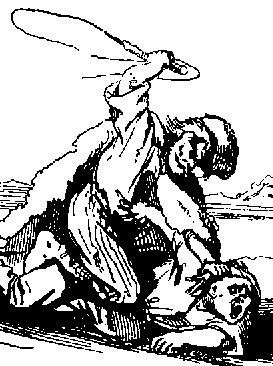I'll stop here as i really don't want to go into my background.

| Submit your comments on this article |
| Science & Technology |
| Black hole rips apart doomed star in 'rare' event |
| 2019-09-29 |
| [PRESSTV] Scientists have captured a view of a colossal black hole violently ripping apart a doomed star, illustrating an extraordinary and chaotic cosmic event from beginning to end for the first time using NASA's planet-hunting telescope. The US space agency's orbiting Transiting Exoplanet Survey Satellite, better known as TESS, revealed the detailed timeline of a star 375 million light-years away warping and spiraling into the unrelenting gravitational pull of a supermassive black hole, researchers said. The star, roughly the same size as our sun, was eventually sucked into oblivion in a rare cosmic occurrence that astronomers call a tidal disruption event, they added. Speaking to Rooters, NASA scientist Knicole Colon said the event involving a black hole violently ripping apart a doomed start was "rare." Astronomers used an international network of telescopes to detect the phenomenon before turning to TESS, whose permanent viewing zones designed to hunt distant planets caught the beginning of the violent event, proving effective its unique method of surveying the cosmos. Such phenomena happen when a star ventures too close to a supermassive black hole, objects that reside at the center of most large galaxies, including our Milky Way. The black hole's tremendous gravitational forces tear the star to shreds, with some of its material tossed into space and the rest plunging into the black hole, forming a disk of hot, bright gas as it is swallowed. Observing the oscillation of light as the black hole gobbles the star and spews stellar material in an outward spiral could help astronomers understand the black hole's behavior, a scientific mystery since physicist Albert Einstein's work more than a century ago examined gravity's influence on light in motion. |
| Posted by:Fred |
| #9 Don't you have this backwards AC? More dimensions make harder math. |
| Posted by: g(r)omgoru 2019-09-29 11:35 |
| #8 As I understand it Stephen Hawking made a lot of statements that cannot be experimentally tested and that the politics in the physics community around String Theory are vicious. Counting time as a dimension is one thing, positing 13 more dimensions to try and make your math work is another. |
| Posted by: AlanC 2019-09-29 08:26 |
| #7 This isn't about OJ and Ron Goldman? |
| Posted by: Procopius2k 2019-09-29 07:43 |
| #6 😊 |
| Posted by: g(r)omgoru 2019-09-29 04:08 |
| #5 "a bit more" |
| Posted by: Seeking Cure For Ignorance 2019-09-29 04:01 |
| #4 G(r)omgoru, you forgot hypotheses! I understand a biy more than the average person and agreeing with me is rather irrelevant, what matter is a well thought out argument that can be repeated/experimented by others to prove/disprove a statement. I'll stop here as i really don't want to go into my background.  |
| Posted by: Seeking Cure For Ignorance 2019-09-29 04:00 |
| #3 Seeking, you only cite evidence/theories that agree with you (and most don't understand the difference between evidence and theories). |
| Posted by: g(r)omgoru 2019-09-29 03:12 |
| #2 Tore it a new one, I daresay. Turnabout's fair play, wot! Ahem. Goose and gander? Erm... |
| Posted by: Chesney Snore8507 2019-09-29 02:26 |
| #1 I noticed in articles like this that Albert Einstein is frequently mentioned, but they never mention Stephen Hawking name. That indicate that perhaps Stephen Hawking work was not as ground breaking or an improvement over Albert Einstein work? |
| Posted by: Seeking Cure For Ignorance 2019-09-29 01:49 |